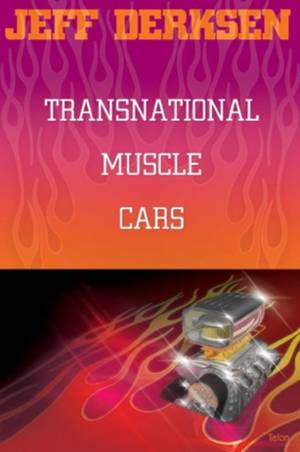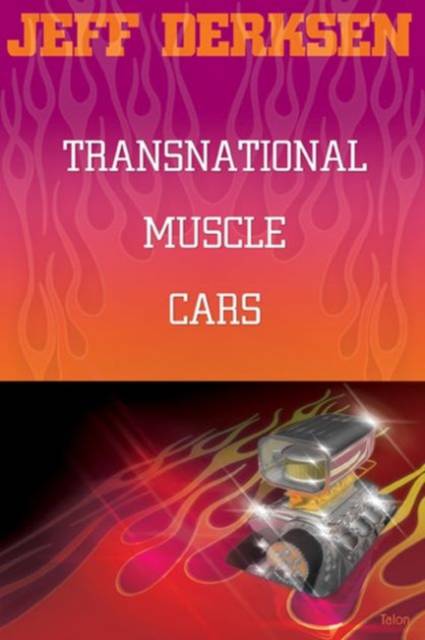
En raison d'une grêve chez bpost, votre commande pourrait être retardée. Vous avez besoin d’un livre rapidement ? Nos magasins vous accueillent à bras ouverts !
- Retrait gratuit dans votre magasin Club
- 7.000.000 titres dans notre catalogue
- Payer en toute sécurité
- Toujours un magasin près de chez vous
En raison de la grêve chez bpost, votre commande pourrait être retardée. Vous avez besoin d’un livre rapidement ? Nos magasins vous accueillent à bras ouverts !
- Retrait gratuit dans votre magasin Club
- 7.000.0000 titres dans notre catalogue
- Payer en toute sécurité
- Toujours un magasin près de chez vous
Description
Transnational Muscle Cars provides a withering critique of how it is that consumption, buying (into) something, buying anything, has become the prime mover in a transient global urbanism that now defines our everyday lives.
Written over the past ten years in a quartet of cities--Calgary, Toronto, New York and Vienna--Transnational Muscle Cars is the second book in Jeff Derksen's trilogy addressing place, culture and capital, and draws on a wide array of North American post-war poetics--the declarative aspects of New American Poetry, the pop cultural details of the New York School, the reflexive politics of the Language Poets, the personal politics of the Kootenay School of Writing--and on contemporary cultural and political theory, critical geography, urban theory, and architectural concepts. Whereas the first book in this trilogy, Dwell, tried to work out a poetics of place still tied to questions of national culture, Transnational Muscle Cars rescales these questions. Moving from the national to the global-urban, it draws on a wide range of cultural references, from Keanu Reeves to the Russian Constructivists, from the Gap to inflatable architecture. While the politics of poetic form is still a key aspect of Derksen's work, geography has overtaken language as its central focus. What are the politics of this new cultural landscape? And how do you drive across it? And why does this new imperialism behave so much like a classic muscle car--all brawn and horsepower, but with little braking power and an inability to negotiate curves?Spécifications
Parties prenantes
- Auteur(s) :
- Editeur:
Contenu
- Nombre de pages :
- 128
- Langue:
- Anglais
Caractéristiques
- EAN:
- 9780889224735
- Date de parution :
- 15-07-03
- Format:
- Livre broché
- Format numérique:
- Trade paperback (VS)
- Dimensions :
- 121 mm x 198 mm
- Poids :
- 154 g

Les avis
Nous publions uniquement les avis qui respectent les conditions requises. Consultez nos conditions pour les avis.






